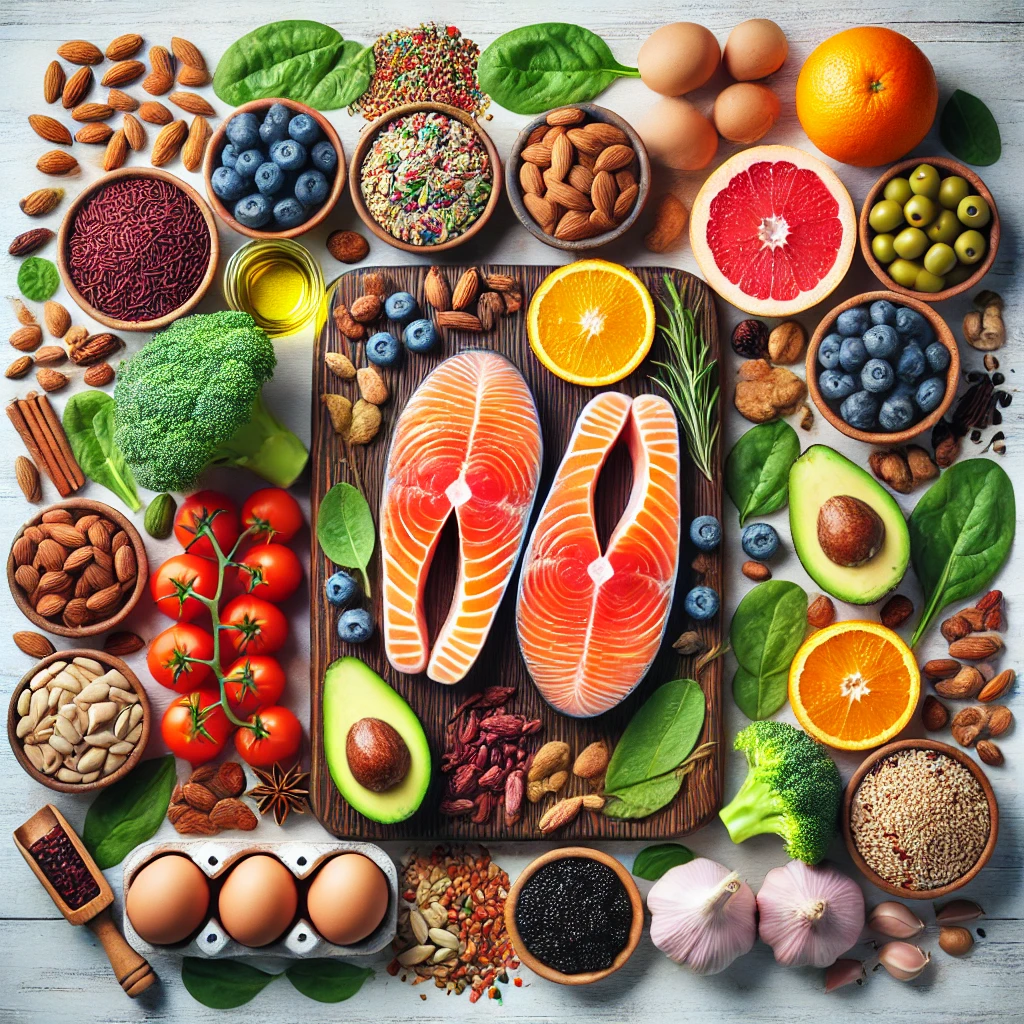Essential Guide to Protein
Published Nov 12, 2024 | 8 Minute Read
Unlocking the Power of Protein
When you think of protein, muscle-building and weight loss may come to mind, but its benefits go far beyond. Protein is essential for overall health, supporting everything from muscle repair to immune function. Let’s delve into why protein matters, how it impacts weight management, and the best sources to meet your daily needs.
What is Protein?
Protein is a key macronutrient, alongside carbohydrates and fats. It plays a crucial role in tissue growth, repair, and maintenance. From supporting muscle health to aiding the immune system, protein is often described as the “building block of life.”
How Protein Functions in the Body
Think of protein as the body’s worker bees. Unlike fats and carbohydrates, the body doesn’t store protein, so it constantly relies on dietary intake. Proteins are made up of amino acids, which perform essential roles:
- Enzymes (Chefs): Speed up and manage chemical reactions.
- Hormones (Mail Carriers): Regulate bodily functions and communication.
- Antibodies (Security Guards): Protect against infections and illnesses.
Without sufficient protein, the body struggles to maintain and repair itself effectively.
Protein and Weight Management
Protein is a vital component of a balanced diet, especially for weight management. Here’s why:
- Higher Thermic Effect: Your body uses more energy digesting and metabolizing protein than other macronutrients, leading to greater calorie burn.
- Appetite Control: Protein helps you feel fuller for longer, reducing cravings and calorie intake.
- Muscle Mass Preservation: When losing weight, protein intake is crucial to maintain lean muscle, which boosts metabolism.
- Blood Sugar Regulation: Protein helps stabilize blood sugar, minimizing spikes and crashes often caused by refined carbs.
For those on a weight-loss journey, incorporating sufficient protein into your diet is key to achieving your goals.
Types of Protein
- Animal-Based Proteins: Meat, dairy, and eggs contain all essential amino acids.
- Plant-Based Proteins: Legumes, grains, nuts, and seeds provide a variety of nutrients and can be combined for complete amino acid profiles.
- Protein Supplements: Whey, casein, and plant-based protein powders offer a convenient way to increase intake.
A diverse diet with a mix of these sources is ideal for optimal nutrition and health.
How Much Protein Do You Need?
Your ideal protein intake varies based on age, activity level, and goals. A general guideline is:
- 0.64–0.91 grams of protein per pound of body weight.
For example, a person weighing 150 pounds should consume 95–136 grams daily. Athletes or individuals with higher physical demands may need more. Use this formula to calculate your intake:
Weight (lbs) / 2.2 = Weight (kg)
Timing Your Protein Intake
Research suggests spreading protein intake throughout the day maximizes muscle synthesis and supports weight management. Here are some tips:
- Include a protein source at every meal and snack.
- Opt for lean meats, dairy, legumes, and tofu.
- Divide total daily protein into smaller meals.
Easy Ways to Add More Protein
Boosting protein doesn’t have to be challenging. Here are simple ways to increase your intake:
- Snack Smart: Greek yogurt, nuts, or cottage cheese make excellent snacks.
- Swap Ingredients: Use quinoa instead of rice or choose whole grain bread enriched with seeds.
- Incorporate Lean Meats: Chicken, turkey, and fish are great protein sources.
- Mix It Up: Add legumes, tofu, or tempeh to dishes like salads and stir-fries.
- Dairy Options: Milk, cheese, and yogurt are excellent sources.
Common Myths About Protein
Myth 1: All proteins are the same.
Fact: Different sources offer varying amino acid profiles and nutrients.
Myth 2: More protein equals more muscle.
Fact: Consuming adequate protein is important, but excess won’t speed up muscle growth.
Myth 3: Plant-based proteins are inferior.
Fact: Combining plant proteins can meet all amino acid needs, making them equally beneficial.
Favorite High-Protein Recipes
For Meat Eaters:
- Smoked Salmon Breakfast Bowl
- High-Protein Chicken Salad
For Everyone:
- High-Protein Maple & Seed Porridge
- Protein-Packed Pancakes
FAQs About Protein
Can you meet protein needs on a plant-based diet?
Yes, with careful planning and a mix of plant sources.
Is too much protein harmful?
Excessive intake can strain the kidneys and liver. Stick to recommended levels.
How does protein affect athletes?
Protein supports muscle repair and growth post-exercise.
Bottom Line
Protein is vital for a balanced diet, weight management, and overall health. Tailoring your protein intake to your lifestyle and goals ensures you achieve optimal health and wellness.
For more personalized guidance, consult with a healthcare professional or dietitian.
Ready to elevate your health journey? Explore high-protein meal plans and recipes tailored just for you at SlyAcademy.com.







